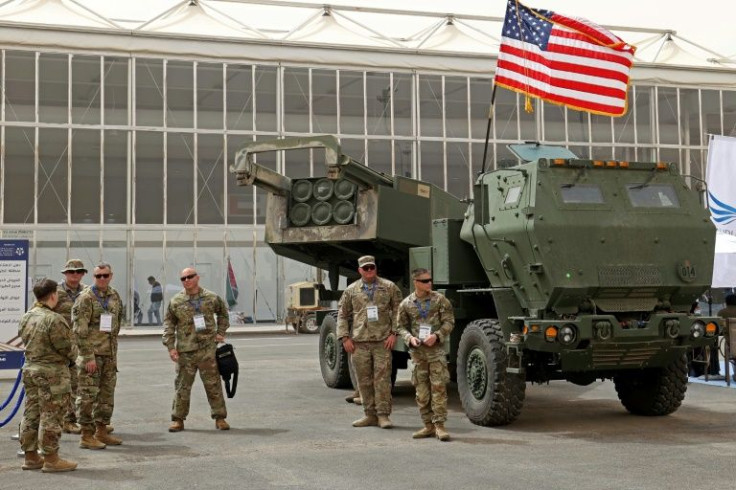'The Big One Is Coming,' Warns US Stratcom Chief, Calls Ukraine Crisis A 'Warm-up'
KEY POINTS
- 'We're going to get tested in ways that we haven't been tested a long time,' said Stratcom chief
- Stratcom is responsible for strategic nuclear deterrence and global strike
- While China's military modernization continues, the U.S. struggles with delays, cost overruns
With China on the path to "outcompete" and Russia not going "anywhere anytime soon," the U.S. must be prepared for much more than the ongoing conflict in Ukraine, Navy Admiral Charles A. Richard, the commander of the U.S. Strategic Command (Stratcom), has said.
"This Ukraine crisis that we're in right now, this is just the warm-up," Richard said, adding, "The big one is coming. And it isn't going to be very long before we're going to get tested in ways that we haven't been tested [in] a long time."
Richard made the comments at the Naval Submarine League's 2022 Annual Symposium & Industry Update on Nov. 3, and his remarks were released by the defense department.
The current global situation "vividly" represents "what nuclear coercion looks like," Richard said, adding that the U.S. needs to "do some rapid, fundamental change in the way" it approaches defense. He warned that nations like China are dramatically outcompeting the U.S., and to counter this, Washington must step up its deterrence game.
"As I assess our level of deterrence against China, the ship is slowly sinking," Richard observed. "It is sinking slowly, but it is sinking, as fundamentally they are putting capability in the field faster than we are."
Richard leads the U.S. Strategic Command, which is one of the eleven unified combatant commands in the U.S. defense department. Stratcom is responsible for strategic nuclear deterrence, global strike, and operating the defense department's Global Information Grid.
Emphasizing that to regain its competitive edge, the U.S. must look back at how military modernization was achieved at a faster pace in the 1950s, Richard said: "We used to know how to move fast, and we have lost the art of that."
"We have got to get back into the business [...] to the way we used to ask questions in this nation, which is what's it going to take? Is it money? Is it people? Do you need authorities? What risk? that's how we got to the Moon by 1969. We need to bring some of that back. Otherwise, China is simply going to outcompete us, and Russia isn't going anywhere anytime soon," Richard pointed out.
The Stratcom commander's observations about the emerging challenges come at a time when China is involved in a massive military modernization program while the U.S. continues to struggle with maintenance issues, delays and cost overruns.
Significantly, the National Strategy of the defense department termed China as a "pacing challenge," pointing out that Beijing posed the "most comprehensive and serious challenge to the U.S. national security."
The national strategy document, which was released on Oct. 27, highlighted China's "coercive and increasingly aggressive endeavor to refashion the Indo-Pacific region and the international system to suit its interests and authoritarian preferences."
A report titled, 2023 Index of U.S. Military Strength, also released in October by the D.C.-based Heritage Foundation, pointed out that the U.S. military is "weak" and "at growing risk of not being able to meet the demands of defending America's vital national interests."
The U.S. military was "certainly ill-equipped to handle two nearly simultaneous" major regional contingencies, the report stated.

© Copyright IBTimes 2025. All rights reserved.






















